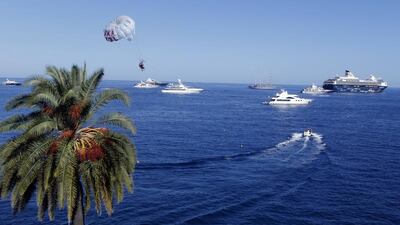August is the time for holidays, when we can all lock up the house, forget the daily grind of life at home, and enjoy a week or two in a new locale with new experiences to savour. It’s also a precious opportunity to rediscover the simple things in life: romance, reconnection with the children and that most elusive commodity, “quality time”.
My own routine is no exception, and last week I swapped the daily regime of writing to deadlines and auditioning for acting jobs for a few blissful days in the sunshine of southern Croatia, along with my long-suffering wife. Just as well I did, because the stress of getting there meant we needed a holiday more than ever.
Considering it’s supposed to be fun, there are few tasks more vexatious to the spirit than trying to book a holiday. First is the problem of choosing where to go. In the old days you simply picked up a brochure at your local travel agent and hoped for the best. But no longer. Nowadays there’s so much choice, and so much conflicting information, that it’s virtually impossible to make a firm decision.
And it’s no good relying on websites such as TripAdvisor in the hope of gaining some clarity. A glance at any small sample of recent reviews from other travellers will tell you far more about human nature than it does about your preferred resort, as you can be sure the postings will oscillate wildly between “Paradise on Earth, do not miss” to “Horrific, avoid at all costs”.
Never mind. We’ve finally chosen a small sun-kissed village in Croatia. Now at least we can stop arguing. Can’t we? In fact the rows are only just beginning. What, for instance, should we pack? A heavy coat in case of an unexpected cold snap, or just shorts and T-shirts? Should we take our laptop or try to get away from all that for a bit? What about snorkelling gear and a windbreak? And surely we should have at least one smart outfit in case we want to treat ourselves to a romantic candlelit dinner?
OK, let’s pack for every eventuality. So we do, only to find that the suitcase is now so heavy that neither of us can even lift it down the stairs; and that once at the airport we rack up the cost of another holiday in excess baggage charges. I already need a lie down and we aren’t even airborne.
There are the other problems. Do we turn off the water? Do we close the curtains? That’ll ensure that no unwelcome passers-by can peer in, but it might draw attention to the fact we’re away. And who’s going to water the garden?
This grotesque ordeal is all topped off by the ludicrously early start to our trip. “Please ensure you check in at least two hours before departure time” may be sensible advice from your tour operator when your flight leaves at a reasonable time – but as we all know, package holidays usually take off at ludicrously unsociable hours, and “two hours before departure” often equates to the time when you’d normally be going to sleep.
With your trusty alarm clock set for 3.30am, you go to bed far earlier than you normally would, sleep fitfully, your dreams full of scenarios of missed connections, lost passports and suitcases that won’t fasten. You wake in a cold sweat at midnight, 1am, 2am, 2.15am and 2.45am, only to then sleep through the alarm itself.
The result is a mad dash in a taxi, the air thick with muttered recriminations and with both of you swapping divorce writs at the check-in queue. In the case of my trip just gone I experienced an even more crazed scenario. For the first and only time (for I am not a great fan of the beautiful game) I dreamt vividly in the hours leading up to the alarm call that I was playing for some unspecified football team in a match against the mighty Chelsea FC. At about 2 I woke to find myself kicking my wife repeatedly in the shins.
“What on Earth are you doing?” she shouted as she pushed me away. I explained my nocturnal mental wanderings. “But why kick so savagely?” she continued, rubbing her shins. My response – “It was a cup tie” – did little to improve her mood.
Happy holidays, everyone.
Michael Simkins is an actor and writer in London
On Twitter: @michael_simkins

